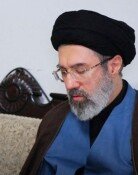Tax Relief Would Help More: Experts
Tax Relief Would Help More: Experts
Posted September. 27, 2006 07:09,
The Korea Institute of Public Finance (KIPF) analyzed that cutting taxes rather than increasing fiscal expenditure would increase the national income and boost the economy to a greater extent.
The findings of the national institute KIPF are noteworthy at a time when the current government is striving to expand fiscal expenditure with the theme of Vision 2030 which requires at least 1,100 trillion won.
KIPF associate fellow Kim Woo-cheol, in a report titled Analysis on How Changes in Annual Revenue and Annual Expenditure Influence the National Income published in the monthly magazine Finance Forum, said on September 26 that the outcomes were obtained by analyzing the annual consolidated budget documents.
The report analyzed that the income-increasing effects as a result of lowering tax last longer and more continuously than the governments expenditure-increasing effects for the same amount. In addition, cutting tax boosts income to a greater extent than higher fiscal expenditure by 1.2 to 2.9 times.
According to the report, the impact on the national income by lowering the tax by one won leads to maximum income levels after 12 months with an income increase of 0.580 won.
By contrast, it was analyzed that the impact with an increase in government expenditure by one won is the greatest after nine months when the income increase is 0.482 won.
The impacts last three months longer, greater effect on the income, when tax is deducted.
Mr. Kim cautiously said, However, this analysis alone cannot fully guarantee that cutting taxes is absolutely better than expanded government expenditure, adding, Just interpret it as possibly favorable.
Meanwhile, KIPF senior fellow Sung Myung-jae, in a report titled, Distribution of Taxation and Transfer Income, released on the day said that the National Statistical Office analyzed the household income and expenditures nationwide in 2005, and last year, the average Korean household with more than one person earned an income of 39.804 million won, and 8.6 percent of the income, 3.411 million won, was spent on tax.
It was found that 12.5 percent of the income was spent on the combination of tax and Social Security contribution, including national pension and health insurance, reaching 4.963 million won.
The tax paid per household was 1.434 million for direct tax such as income tax and property tax, and 1.977 million won for indirect tax such as value added tax and special consumption tax. The two taxes added up to 3.411 million won while each household paid 1.552 million won for the Social Security contribution.
sanjuck@donga.com







